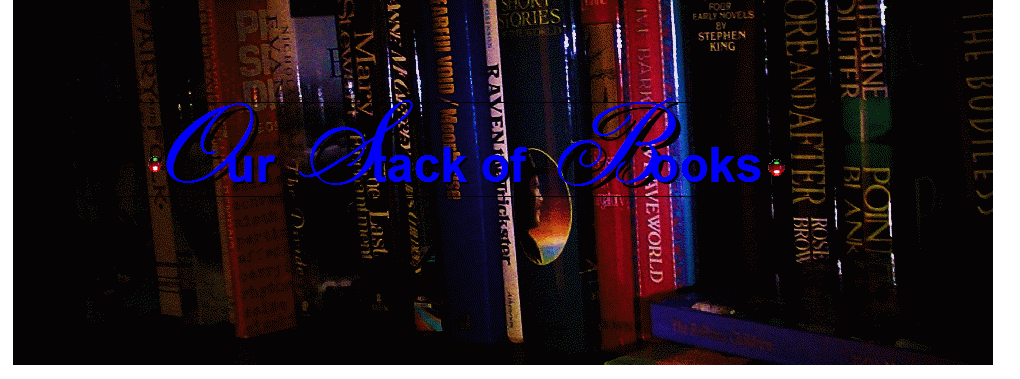 The Chaneysville Incident by David Henry Bradley Jr.
The Chaneysville Incident by David Henry Bradley Jr.My rating: 4 of 5 stars
It's somewhat a boring read in some parts and it is maybe because I'm not interested in history and this book has a lot of it since the main character is a historian. At times, I would really have to push myself to read it. I always make sure that when I start a book, I read it to the end. That's just how I read. However, I like the story, the mystery of it, the ending too. It's a look into the controversial topic of black history and I'm just relieved that it is not happening now. We are all brothers and sister no matter what our color or race. That is my belief.
View all my reviews
Book Summary
The legends say something happened in Chaneysville. The Chaneysville Incident is the powerful story of one man's obsession with discovering what that something was--a quest that takes the brilliant and bitter young black historian John Washington back through the secrets and buried evil of his heritage. Returning home to care for and then bury his father's closest friend and his own guardian, Old Jack Crawley, he comes upon the scant records of his family's proud and tragic history, which he drives himself to reconstruct and accept. This is the story of John's relationship with his family, the town, and the woman he loves; and also between the past and the present, between oppression and guilt, hate and violence, love and acceptance.
About the Author
Bradley, David (b. 1950), author and professor of creative writing. Born and raised in Bedford, Pennsylvania, David Bradley's horizon was shaped by a rural world near the soft-coal region of western Pennsylvania and by his father, a church historian and eloquent preacher, who frequently took his son on trips to the South. After high school Bradley was named Benjamin Franklin National Achievement and Presidential Scholar. In 1972, he graduated summa cum laude from the University of Pennsylvania and was awarded a Thouron Scholarship for the University of London, where he received his MA in 1974, and established a lasting interest in nineteenth-century American history, resulting in the writing of four versions of his second novel when he returned to America.
In 1975, with the publication of his first novel, South Street, Bradley showed a keen interest in depicting everyday life and in the use of vernacular language. The book is centered on a black bar, a black church, and a hotel lobby on Philadelphia's South Street. In an ironic black urban version of the Western genre, Bradley has the black poet Adlai Stevenson Brown temporarily live and work amidst the unstable conditions of the black ghetto. Brown functions as a catalyst for the fantasies of hustlers, drinkers, whores, and preachers, whose sexual and material power games, articulated in vividly idiomatic speech and couched in ebullient or caustic humor, add up to a virtuoso dramatization of a vibrant, though depressed, city milieu.
Bradley's second novel, The Chaneysville Incident (1981), won the PEN/Faulkner Award in 1982 and was quickly recognized as a major text of African American fiction. Its protagonist, John Washington, a history professor in Philadelphia, in the process of exploring his family and group history finds himself confronted with his father's dying friend Old Jack (an embodiment of the black oral tradition); with the life plans of his father Moses and his ancestor C. K. Washington (who both tried to exert covert influence on the white power structure); and with his white girl friend, Judith a psychologist, who eventually helps John to make meaningful a partially buried and fragmented history through an imaginative complementation of the data from several incidents near Chaneysville, especially the voluntary suicide of a group of fugitive slaves when threatened with reenslavement.
After shorter spells as an editor and a professor of English, David Bradley settled at Temple University in Philadelphia as professor of creative writing in 1977. He has published a variety of essays, book reviews, and interviews in prestigious periodicals, magazines, and newspapers treating topics such as black education and literature, the exemplary lives and self-concepts of black athletes, and the status and reception of Malcolm X. Bradley worked on a Malcolm X film script for Warner Brothers between 1984 and 1988 but gave up hope when faced with the systematic evisceration of Malcolm's figure by Hollywood. With Shelley Fisher Fishkin, Bradley edited the three-volume Encyclopedia of Civil Rights in America in 1998.
Some rumors about Bradley's working on a detective novel notwithstanding, the author in a 1992 interview claimed to be at work on a nonfiction book about the founding documents and the continuing tradition of racism in America.

No comments:
Post a Comment